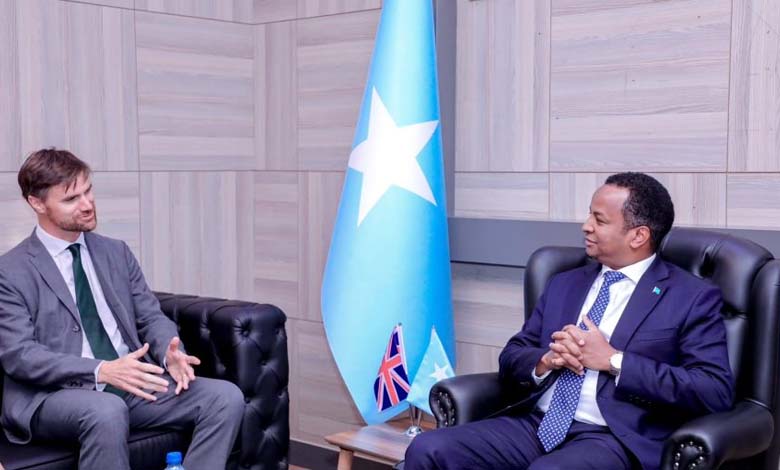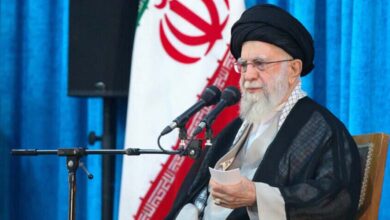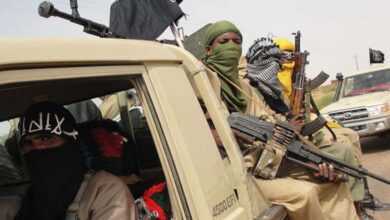Khatumo’s Legitimacy Sparks Rift Between Puntland and Mogadishu… Conditional Dialogue Proposed

From a “serious breach of red lines” to a “legitimate federal state whose existence cannot be questioned,” opposing narratives have emerged between Puntland and the Khatumo region following the federal government’s decision to officially recognize Khatumo as part of Somalia’s federal system.
-
They Infiltrated from Puntland: Ethiopia Arrests Dozens of ISIS Fighters
-
Puntland’s Darawish Forces Eliminate ISIS’s Last Stronghold in Somalia – Details
Puntland openly rejected the federal government’s decision to include Khatumo as an official administrative entity within the country’s political framework. It described the move as “lacking any legal or constitutional basis and a grave violation of red lines.” In response, the Khatumo administration criticized Puntland’s statement as “regrettable and contrary to the spirit of the Somali federal system.”
Fragile political balances
Puntland accused Mogadishu of “violating political balances and undermining the principle of federal consultation,” amid escalating tensions between the central government and autonomous regions.
-
Somalia: War on Terror in the South, Political Fractures in the North
-
President of Puntland state in Somalia paves the way for stability
This firm position was outlined in a statement issued by Puntland’s Ministry of Interior, warning that “any attempt to impose a new administration in its traditional areas constitutes a direct threat to regional stability and a potential opening for extremist groups such as Al-Shabaab and ISIS.”
The statement insisted that “the Khatumo regions, which include parts of Sool and Sanaag, have been integral parts of Puntland since its establishment in 1998,” emphasizing that the Dhulbahante clan inhabiting those areas is one of Puntland’s founding communities.
-
African Union Forces Helicopter Crashes in Somalia
-
Crash of Africa Corps Jet Sparks Tensions in Northern Mali: Is War on the Horizon?
Nonetheless, Puntland expressed openness to a conditional dialogue, calling for an inclusive consultative conference involving Dhulbahante elders and intellectuals, with the aim of reaching a local consensus on the region’s future. However, the key precondition remains adherence to Puntland’s legal and constitutional processes before any new administration can be formed.
Khatumo’s response
Khatumo’s administration responded through its Deputy President, Mohamed Ismail Shini, who stated, “Khatumo is now a legitimate federal member state, and its existence is beyond doubt.” He described Puntland’s statement as “unfortunate and inconsistent with the spirit of Somalia’s federalism.”
-
Clashes in Northern Mali Between Tuareg Separatists and Russian-Backed Government Forces
-
Somalia Calls for End to International Support Mechanism Despite Fragile Situation
These developments follow the opening of a broad-based conference in Las Anod, the administrative capital of Sool, attended by representatives of the federal government, prominent political figures, and tribal and civil delegations from across the region. The goal was to finalize political and administrative arrangements for Khatumo’s transition from a temporary administration into a full-fledged federal state within Somalia’s system.
Conflict roots
The dispute between Puntland and Khatumo is not new. It is rooted in long-standing disagreements over political representation and administrative affiliation of key strategic areas in northeastern Somalia.
-
The June 5 Coalition in Mali… A Broken Dream
-
Jama’at Nasr al-Islam wal Muslimin Attempts to Infiltrate Mauritania and Senegal: What Is It Planning?
Puntland maintains that its 1998 constitution includes Sool and Cayn within its borders. Meanwhile, Khatumo argues that local societal dynamics and shifting public sentiment grant it the legitimacy to seek independent representation.
Puntland views these contested territories as part of its strategic depth and warns that bypassing the local population and traditional leadership could create a political and security vacuum, especially given the fragility of central institutions.
-
How the Somali Branch of ISIS Managed to Build an Influence Network Beyond Local Borders?
-
The Strongman of ISIS is a Mysterious Somali Financier… Learn About Him
The battle for recognition
Earlier this year, the Somali federal government confirmed its intent to recognize Khatumo as a federal member state. This decision significantly heightened tensions with Puntland, which interpreted it as a move to redraw northeastern Somalia’s political and territorial map, threatening its influence and fragile clan-based balance.
Somalia analysts suggest that in the absence of clear and mutually agreed mechanisms for forming federal states, and with each side entrenched in its position, resolution efforts hinge on the federal government’s ability to engage all stakeholders without appearing biased.
If this open-ended conflict continues without resolution, it risks eroding trust between the central government and federal entities, and undermining national security efforts in regions that remain vulnerable to terrorism, observers warn.












